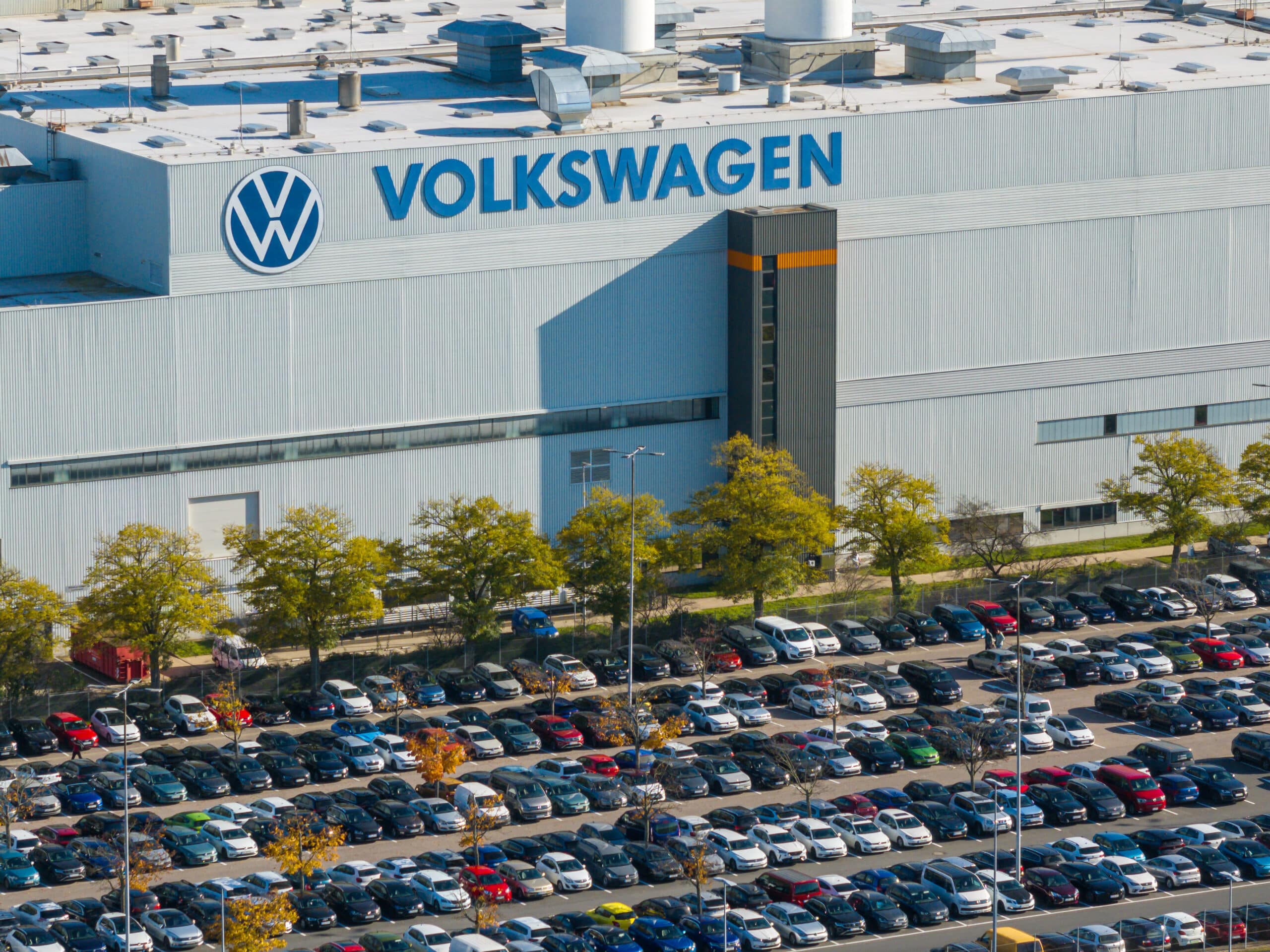
Aerial view taken on October 28, 2024 shows the plant of German car maker Volkswagen (VW) in Zwickau, eastern Germany. – Ailing auto giant Volkswagen plans to close at least three factories in Germany and slash tens of thousands of jobs as part of drastic cost-savings drive, workers’ representatives said on October 28, 2024, calling the proposed cuts “of historic dimensions”. The plan laid out by management, which affects the namesake VW brand, also includes a 10-percent pay cut for all staff, the company’s powerful works council said in an update to staff. (Photo by AFP)
Berlin, Germany — Volkswagen on Wednesday said it had demanded a 10-percent wage cut in negotiations with workers’ groups that fear the ailing German auto giant will close several plants on its home turf.
VW negotiator Arne Meiswinkel in a statement rejected demands for higher wages and said that “rather, the company sees a 10 percent wage cut as a lever that will enable Volkswagen to continue to invest in the future in order to remain competitive and thus secure jobs”.
The company also wants to cut some special allowances for employees, Meiswinkel said after almost seven hours of talks at the company’s corporate headquarters in Wolfsburg.
READ: Volkswagen plans to close 3 German plants — work council
Even then, he argued VW would still be a highly attractive employer.
IG Metall union negotiator Thorsten Groeger described the company’s demands as an unacceptable “poison list” of measures and a “brazen grab into employees’ pockets”.
But he said management’s stated aim of protecting jobs and sites meant that a breakdown of talks had been averted for now.
VW did not mention plant closures and lay-offs in its statement but these were still on the table according to IG Metall.
Works council chairwoman Daniela Cavallo said the two sides should not just talk about labour costs but about a “master plan” that would “ensure profitability and job security in the future”.